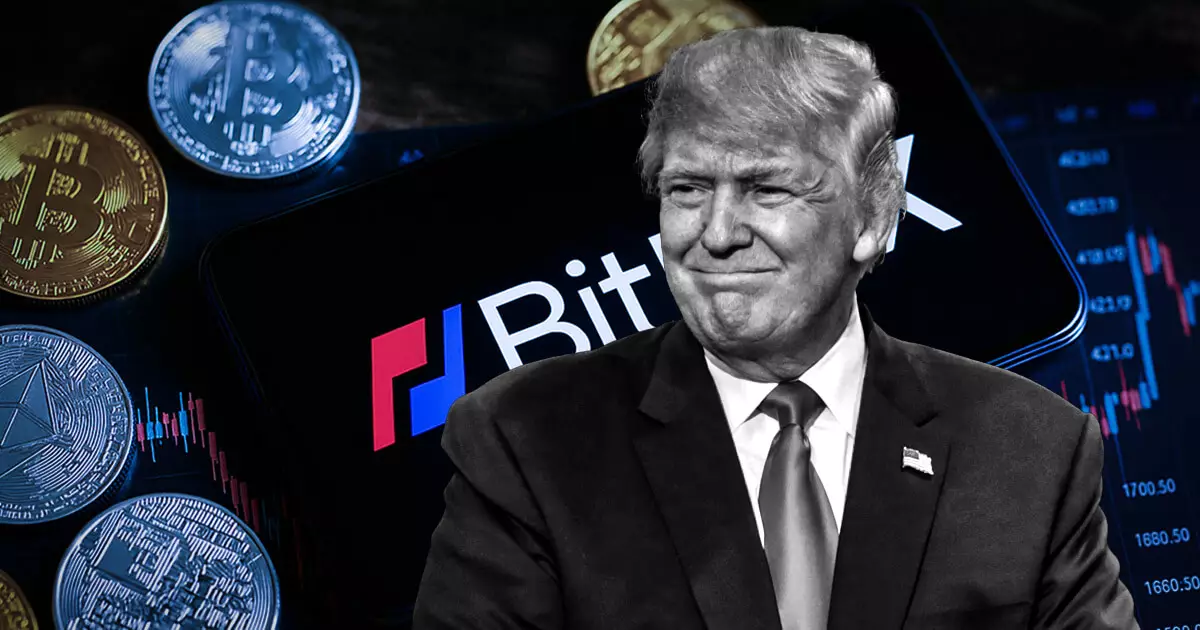The recent pardons issued by former President Donald Trump to the co-founders of BitMEX—Arthur Hayes, Benjamin Delo, and Samuel Reed—have ignited a firestorm of opinions and controversies within the crypto community and the broader political landscape. After the trio admitted guilt to charges related to violations of US anti-money laundering laws, their release from these legal repercussions calls into question the integrity of our financial and judicial systems. The pardons seem to be less a matter of justice and more a politically motivated maneuver, raising troubling questions about accountability and the rule of law.
Pardoning individuals guilty of significant violations under the Bank Secrecy Act sends a message to the public, particularly to innovators in the cryptocurrency space, that high-profile individuals may be partially insulated from the consequences of their actions. When individuals like Hayes and his colleagues plead guilty to charges that reflect systemic flaws in regulated sectors and regulatory oversight, one cannot help but view such pardons as tacit approval of such behavior. This opens a Pandora’s box where individuals might see legal repercussions as mere obstacles that can be navigated with the right political connections.
The Intricacies of Financial Regulation and Accountability
The legal breaches committed by BitMEX were far from trivial. The platform operated with minimal compliance measures and effectively ignored U.S. laws that were in place not just to regulate but to protect consumers and the integrity of the financial system. The fact that BitMEX allowed users to register using nothing but an email and failed to enforce bans highlights a significant lapse in the oversight that is intended to safeguard our financial ecosystems. The actions that followed—fines totaling tens of millions of dollars and probation for its founders—merely skimmed the surface of accountability.
While Delo brushed off the charges as an outcome of an “outdated law” and a “politicized enforcement effort,” one must ponder whether this sentiment is shared by many in the crypto sphere who may find themselves similarly situated. This line of thinking neglects the underlying principles of accountability that ensure fair competition and consumer protection within any industry, especially one as nascent as cryptocurrency.
Market Manipulation and Consumer Protection
The concept of consumer protection should be sacrosanct, especially in a volatile landscape like cryptocurrency. The actions taken by BitMEX not only marginalized typical retail investors by providing easy access to speculative trading but also gave rise to an environment ripe for market manipulation. We should not overlook that while crypto exchanges stand at the forefront of innovation, they also risk becoming breeding grounds for nefarious activities if left unchecked. The lack of identity verification and compliance protocols facilitated a culture where regulatory obligations were optional rather than obligatory.
The BitMEX case acts as a cautionary tale, a stark reminder that self-regulation in finance often leads to chaos rather than order. Those heralding the rise of cryptocurrency as a revolutionary democratization of finance fund their beliefs on shaky ground when entities operate on a ‘move fast and break things’ ethos without the necessary safeguards in place.
The Potential Backlash on Crypto Legislation
As the government gears up to navigate this complex landscape further, Trump’s pardons may result in a backlash that could complicate future legislation within the crypto sector. While many celebrate crypto as a groundbreaking financial vehicle, instances like the BitMEX saga may cause legislators to reconsider the frameworks that they were initially looking to establish. Instead of facilitating innovation, such a drastic event could stifle progress as regulatory bodies tighten their grips on this fledgling industry to compensate for past enforcement lapses.
If government bodies are seen as unreliable due to politically-driven pardons, the trust gap between regulators and industry actors could widen, leading to a more fragmented and less collaborative environment. This scenario would ultimately be counterproductive to the health of an industry that thrives on innovation.
The crypto world is one filled with paradoxes: it offers decentralization and freedom from traditional finance, yet operates in a wild west where accountability often rings hollow. Trump’s pardons put a spotlight on the friction between innovation and regulation, underscoring the urgent need for frameworks that both protect and empower this burgeoning industry.



















